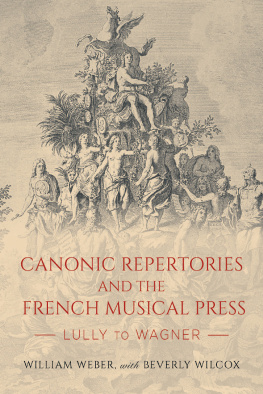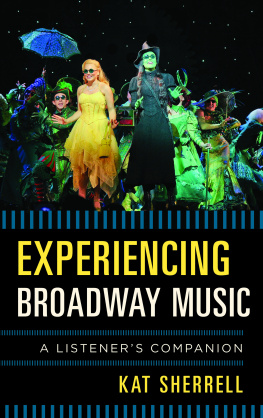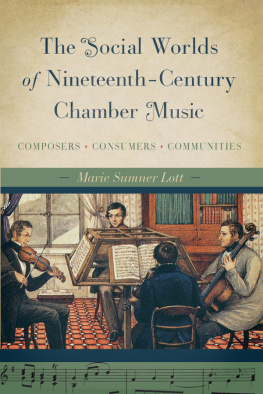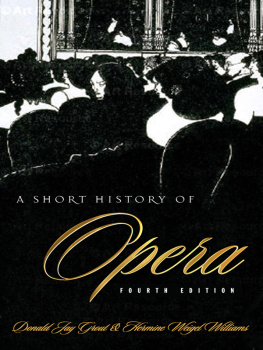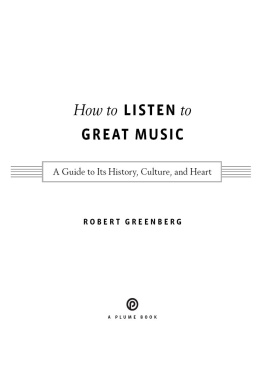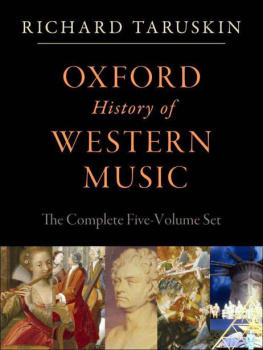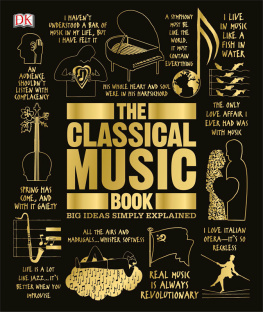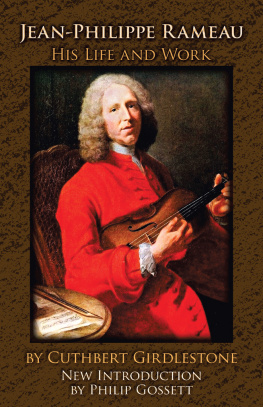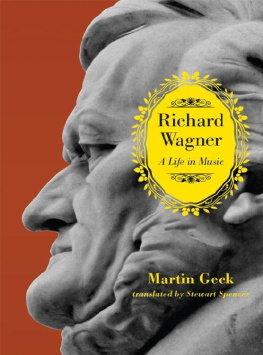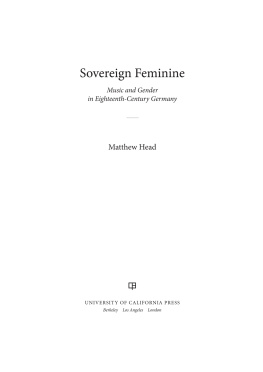Pagebreaks of the print version

Canonic Repertories and the French Musical Press
Eastman Studies in Music
Ralph P. Locke, Senior Editor
Eastman School of Music
Additional Titles of Interest
Building the Operatic Museum: Eighteenth-Century Opera in Fin-de Sicle Paris
William Gibbons
Claude Debussy: A Critical Biography
Franois Lesure
Translated and edited by Marie Rolf
Dance in Handels London Operas
Sarah McCleave
Debussys Resonance
Edited by Franois de Mdicis and Steven Huebner
French Music, Culture, and National Identity, 18701939
Edited by Barbara L. Kelly
French Organ Music: From the Revolution to Franck and Widor
Edited by Lawrence Archbold and William J. Peterson
The French Symphony at the Fin de Sicle: Style, Culture, and the Symphonic Tradition
Andrew Deruchie
Musical Encounters at the 1889 Paris Worlds Fair
Annegret Fauser
Musical Theater in Eighteenth-Century Parma: Entertainment, Sovereignty, Reform
Margaret R. Butler
Parisian Music-Hall Ballet, 18711913
Sarah Gutsche-Miller
A complete list of titles in the Eastman Studies in Music series may be found on our website, www.urpress.com .
Copyright 2021 by William Weber. Chapter 2 copyright 2021 by Beverly Wilcox.
First published 2021
University of Rochester Press
668 Mt. Hope Avenue, Rochester, NY 14620, USA
www.urpress.com
and Boydell & Brewer Limited
PO Box 9, Woodbridge, Suffolk IP12 3DF, UK
www.boydellandbrewer.com
ISBN-13: 978-1-64825-016-3 (hardback)
eISBN-13: 9_781_800_103_306 (ePDF)
ISSN: 1071-9989 ; v. 177
eISBN-13: 9_781_800_103_306 (ebook)
Library of Congress Cataloging-in-Publication Data
Names: Weber, William, 1940- author. | Wilcox, Beverly, author.
Title: Canonic repertories and the French musical press : Lully to Wagner / William
Weber, with Beverly Wilcox.
Description: Rochester : University of Rochester Press, 2021. | Series: Eastman studies
in music, 1071-9989 ; 177 | Includes bibliographical references and index.
Identifiers: LCCN 2020056199 | ISBN 9781648250163 (hardback)
Subjects: LCSH: Musical canon--France--History. |
Musical criticism--France--History. | Music--France--History and criticism. | Opera--France.
Classification: LCC ML270 .W23 2021 | DDC 780.944--dc23
LC record available at https://lccn.loc.gov/2020056199
Cover image: Frontispiece, vrard Titon du Tillet, Le Parnasse franois .
This edition published 2021
Acknowledgments
This book has arisen from the growing intersection between the fields of history and musicology. I have served as professor of history at California State University, Long Beach, but I nonetheless have been increasingly involved with musicologists, influenced by the growing interdisciplinary focus of scholars in the humanities and social sciences. I am particularly indebted to Jeanice Brooks, Christophe Charle, David Charlton, Lauren Clay, Denis Christophoul, Jeremy Coleman, Michel Noiray, Andrei Pesic, and James Webster. I am also grateful for help or encouragement from Celia Applegate, Olivia Bloechl, Logan J. Connors, Georgia Cowart, Mark Darlow, Katharine Ellis, Mark Everist, Richard Flamein, Wolfgang Fuhrmann, Rebecca Harris-Warrick, Sarah Hibberd, Janet Johnson, Thomas Kaiser, Michael ODea, Jeffrey Ravel, Solveig Serre, Patrick Taeb, and Sabine Teulon Lardic. Roy Domoe contributed to the final preparation of the manuscript. Linda Clark, my wife, has served as critic and editor.
The following chapters have appeared elsewhere:
appeared as Domestic versus Foreign Composers at the Opra and the Kings Theatre in the Eighteenth Century in Moving Scenes: The Circulation of Music and Theater in Europe, 17001815 , edited by Pierre-Yves Beaurepaire, Philippe Bourdin, and Charlotta Wolff, Oxford: Voltaire Foundation, 2018. Reprinted with permission of the publisher.
will appear in French as Louer ou critiquer? Le Concert spirituel dans la presse, 17251790 in Presse, thtre et beaux-arts la fin de lAncien Rgime , edited by Michael ODea for the Presses Universitaires de Lyon. Reprinted with permission of the publisher.
.
lOpra-Comique: approches compares (16692010), edited by Sabine Chaouche, Denis Herlin, and Solveig Serre, ditions CNRS, 2012. Reprinted with permission of the publisher.
Illustrations
Figures
Tables
Introduction
When and where did it become common for old musical works to remain in performing repertories?
This concept also points to the changing nature of high reputations, recognizing the multiple kinds of fame which a composer might achieve variously considers how the music of Joseph Haydn achieved an illustrious reputation in the course of his lifetime, lost it in some respects after his death in 1809, but then regained stature in the course of the twentieth century. Another variable in this regard is that composers could obtain more than one kind of recognition among different publics as musical assumptions and taste changed over time.
Indicating how canons have arisen in musical culture requires a conceptual vocabulary to clarify the stages by which composers achieve high status according to the aesthetic and social contingencies of a particular period. The choice of key terms is crucial for such a discussion, because so many old termssuch as classics, masterpieces, or great composershave accumulated vague or distracting implications and thereby become problematic conceptually. I propose that the term respect can afford a basic, relatively neutral way for denoting a basic level of canonic status. That term can also become more emphatic with the use of the term high respect to suggest a greater level of public admiration. Grammatical adjustments of the term canon are also helpful. It is wise to avoid speaking of the canon, because that can seem to suggest greater uniformity than existed in a specific historical context. Canonic status could arise during a composers lifetime, and it is for that reason that I suggest the term incipient canonic status as a way to understand how a composer was recognized on a high level but critical commentary did not always sustain that assumption. Furthermore, it is likewise productive to use the adjective canonic to denote canonic respect given to a composer or a set of works, and thereby to speak of canonic implications or canonic practices. Typically, it is best to define a canon within a particular musical world, for example, the canon of nineteenth-century Lieder or the songs popular in French or British music halls. Most of the main benchmarks for high recognition referred to one or several related genres, for example, on the one hand, opera buffa or the operetta, and, on the other hand, the patter sung in a music hall.
Why is this book focused on France? The project arose from a recognition of how significanta set of musical institutions developed in France from the early eighteenth century as significant canonic repertories for musical culture appeared there earlier than elsewhere in Europe. In no other country did movements according respect to composers emerge as early as they did in France. The process for the first stage of canon formation is related to two central institutions of Parisian musical life, Jean-Baptiste Lullys Acadmie dOpra (1669)renamed the Acadmie Royale de Musique in 1671and the Concert Spirituel (1725), a series of twenty-five concerts given on holy days each year. There arose the Comdie-Franaise (1680), which offered plays dating from the 1630s (to be discussed in ). Thus Lully (163287) and Jean-Philippe Rameau (16831764) could be honored in terms similar to those used to honor the playwrights Pierre Corneille (1606 84), Jean-Baptiste Poquelin, dit Molire (162273), and Jean Racine (1639 99). The second stage in canon formation at the Opra occurred in 1774 and concerned operas by Christoph-Willibald Gluck, Niccol Piccinni, and Antonio Sacchini. In addition, an even longer-lasting third canon of musical works evolved at the Thtre Royal de lOpra-Comique, founded in the 1760s and still offering pieces from the 1760s in 1890.

